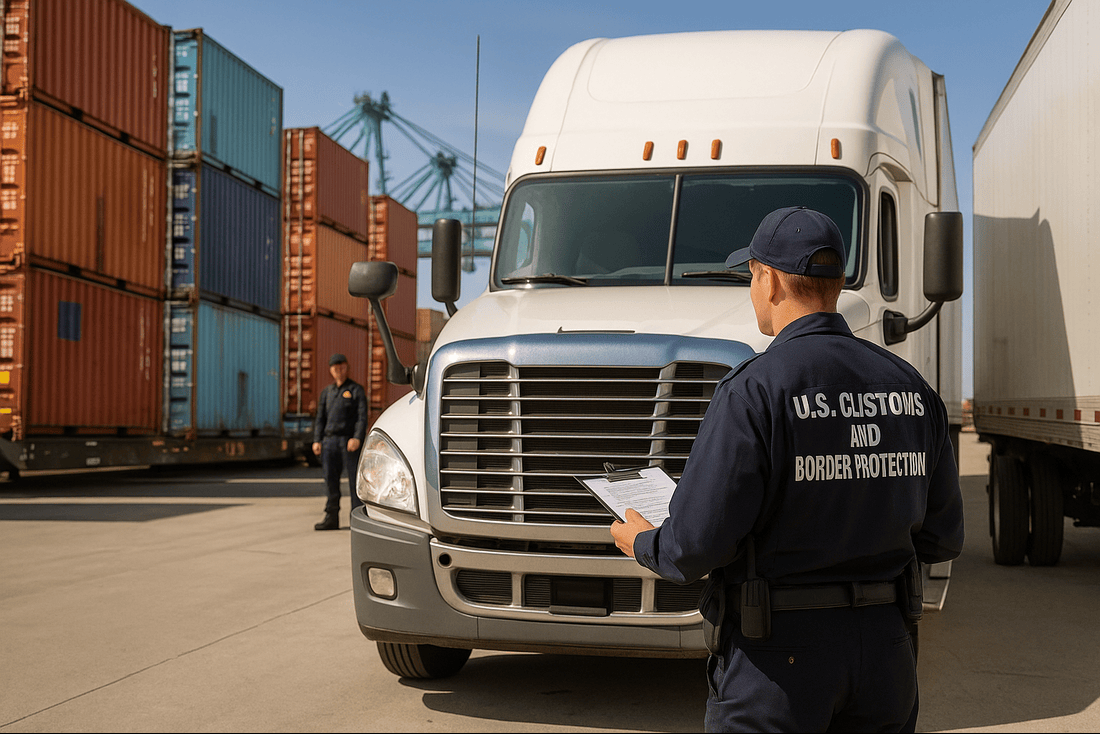
Every international shipment that enters Florida must clear customs before products can be used or sold. For importers, this step is more than just paperwork. It determines how quickly freight reaches warehouses, store shelves, or manufacturing floors. Customs delays can create unexpected storage fees, disrupt tight distribution schedules, and in some cases even lead to penalties. When delays occur, freight can be redirected into a bonded warehouse or Foreign Trade Zone (FTZ), but smart planning helps importers keep control of timing and avoid unnecessary fees.
Understand Florida’s Role in Global Trade
Florida serves as one of the busiest gateways for imports in the United States. With major ports like Miami, Port Everglades, and Canaveral, the state handles everything from retail goods and automotive parts to perishables and high-value equipment. This heavy flow of cargo means customs authorities process thousands of shipments daily. For importers, understanding how these ports operate and what documentation is required is critical to reducing clearance times. Customs clearance tips tailored to Florida’s unique trade environment give companies a competitive edge.
Documentation Is the First Line of Defense
One of the most important customs clearance tips is to have all documents complete and accurate before freight arrives. Missing or incorrect paperwork is the most common cause of delays. Importers should double-check commercial invoices, bills of lading, and packing lists for accuracy. For goods requiring special permits, such as food or medical supplies, paperwork must align with both U.S. Customs and other regulatory agencies. By reviewing documents in advance, importers avoid last-minute issues that can tie up cargo in port yards.
Prepare for Inspections and Holds
Even with perfect paperwork, shipments can be selected for customs inspections. Florida importers should always plan for this possibility by building extra time into schedules. Perishable or high-value cargo should be packed to withstand short delays without spoilage or damage. Another customs clearance tip is to know which goods are at higher risk of inspection. Electronics, textiles, and certain consumer goods are often flagged. Having drivers and logistics partners ready to act once freight is released ensures shipments move quickly once cleared.
Partner With a Licensed Customs Broker
Importers who move freight regularly benefit from working with a licensed customs broker. Brokers act as intermediaries between the importer and U.S. Customs, ensuring all documents, duties, and compliance requirements are met. In Florida, where import volumes are high and regulations often overlap with agencies such as the FDA or USDA, a broker’s expertise saves businesses time and money. This is one of the most valuable customs clearance tips for companies new to international trade.
Build Flexibility Into Scheduling
Because no importer can predict exactly when freight will clear, flexibility is essential. Florida importers should schedule warehouse receiving and trucking with room to adjust if customs holds occur. Using cross-docking or staging options allows cargo to be transferred quickly once it is released. This prevents bottlenecks and reduces storage fees at the port. Customs clearance tips are not just about documentation. They also involve smart planning for what happens after release.
Leverage Local Knowledge in Florida Ports
Each Florida port operates with its own systems, traffic patterns, and clearance procedures. What works at PortMiami may not be the same at Port Everglades or Canaveral. Local knowledge is an advantage for importers who need freight moved without added delays. Working with logistics partners who know port schedules, inspection patterns, and gate operations is one of the most overlooked customs clearance tips. It helps avoid unnecessary waiting and ensures cargo gets on the road faster.
Using Bonded Carrier Service to Avoid Delays
One of the most overlooked customs clearance tips is to work with a bonded carrier. A bonded carrier is authorized by U.S. Customs to transport freight that has not yet cleared duties or taxes. For Florida importers, this means shipments can leave crowded ports and move into bonded warehouses for storage, inspection, or consolidation. Instead of waiting at the terminal and paying high storage fees, cargo is relocated quickly and legally, giving businesses time to complete the clearance process. With Florida’s busy ports often operating near capacity, bonded carrier service is a practical way to keep freight in motion while paperwork catches up.
How Comet Delivery Supports Importers
Comet Delivery works directly with Florida importers to keep customs clearance as smooth as possible. Our team coordinates with drivers, dispatchers, and port facilities to provide real-time updates when cargo is cleared. By staging shipments quickly and offering inland transport options, we help importers avoid unnecessary downtime and reduce dwell time at the port. Whether the cargo is destined for warehouses, retailers, or manufacturers, our local expertise ensures it moves efficiently once customs has released it.
Contact Us
Clearing customs quickly is one of the most important steps in keeping freight on schedule. If your business needs expert support with customs clearance, bonded carrier service, or time-sensitive deliveries across Florida, Comet Delivery is ready to help. Call us today at 305-591-2262 to speak with a logistics specialist who understands the complexities of Florida’s ports and can keep your supply chain moving.